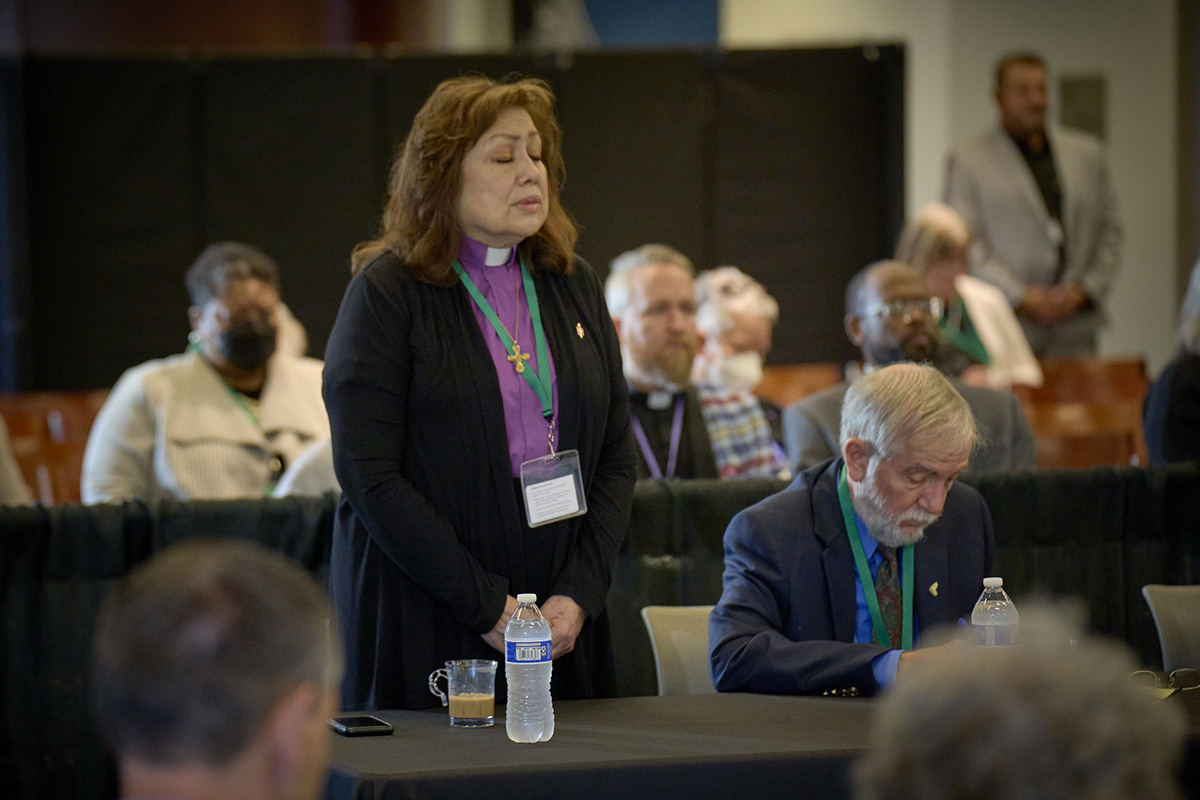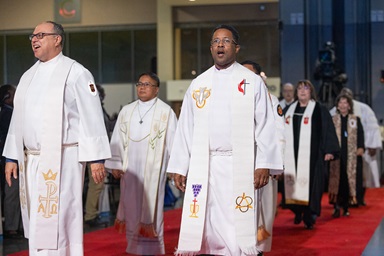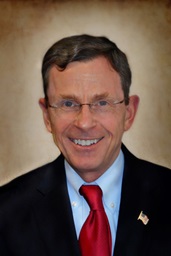Key points:
- After deliberating for more than five hours, a jury of fellow United Methodist clergy rendered a verdict acquitting Bishop Minerva G. Carcaño on all counts.
- After the verdict was announced, Carcaño said she felt “great joy.” With the resolution of the trial process, her suspension also has concluded.
- Carcaño acknowledged much healing will need to be done as she resumes her duties as bishop of the California-Nevada Conference.
A church court found Bishop Minerva G. Carcaño — The United Methodist Church’s first Latina bishop — not guilty of four charges.
Carcaño, who has served as bishop of the California-Nevada Conference since 2016, stood trial before a jury of 13 racially diverse clergy members from the North Central Jurisdiction. The trial, which began Sept. 19, took place at the offices of Wespath Benefits and Investments in Glenview, Illinois, a Chicago suburb.
The bishop faced accusations under church law of disobedience to the order and discipline of the church, undermining the ministry of another clergy person, harassment and fiscal malfeasance.
After a few hours of deliberation on the evening of Sept. 21, the jury — called a trial court in The United Methodist Church — rendered a verdict acquitting her on all counts.

Retired Bishop Alfred W. Gwinn, the presiding officer or equivalent of a judge in the case, announced the verdict to a silent and prayerful church court shortly after the gathering came to order early Sept. 22. This was the first trial of a bishop in The United Methodist Church and its predecessors in nearly a century.
Carcaño, who has served in ordained ministry for 47 years and as a bishop for nearly 20 years, has been under suspension with pay and benefits since March of last year. The situation, she testified during the trial, left her feeling “banished” from her family of faith.
After the verdict was announced, she said she felt “great joy.” With the resolution of the trial process, her suspension also has concluded.
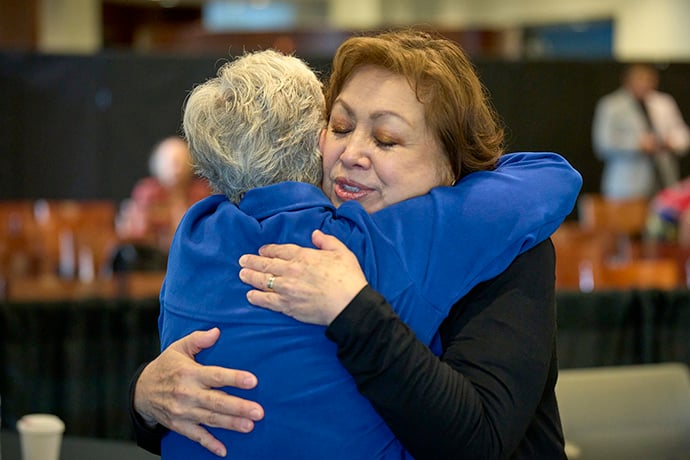
“My banishment has ended, and I feel like I can step back into the family, get back into the circle of this beloved community that I call — with many, many others — ‘my church,’” she said. “I feel like a tremendous burden has been lifted; the door has been opened; the table has been set.”
She said she looked forward to taking Holy Communion in a United Methodist church for the first time in 18 months this coming Sunday. She plans to attend Chicago Temple (First United Methodist Church of Chicago).
But she also acknowledged much healing will need to be done as she resumes her duties as a bishop of the California-Nevada Conference.
“The woundedness we feel is real,” she said, noting that not only she but also those who filed complaints against her were feeling hurt right now.
But, she added, “I believe we can overcome it because of the love of Christ, the love of God that binds us together, I believe we can overcome it.”
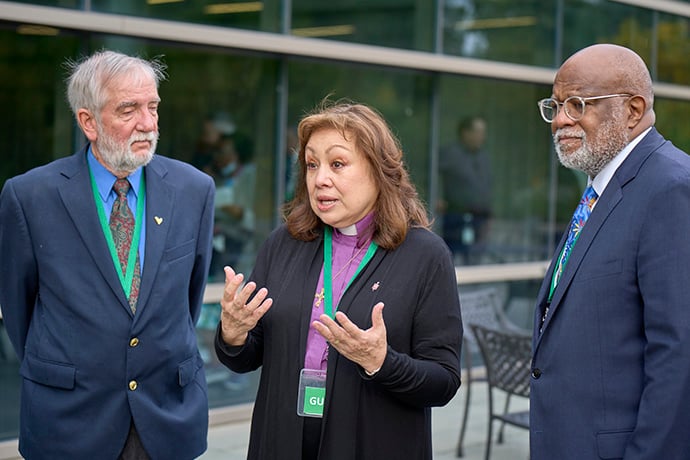
The charges she faced stemmed from three complaints filed by a total of six members of the California-Nevada Conference. Those complaints dealt with three very different situations, but they shared accusations that the bishop had overstepped her authority and acted retributively against her critics.
The testimony by those who supported those complaints as well as those defending the bishop included the recounting of usually very private discussions about employment evaluations and the bishop’s work in fixing pastoral appointments.
The 13-member jury of United Methodist clergy unanimously found her not guilty on all specifications in the charges. The jury remained anonymous throughout the proceedings and stayed in a hotel sequestered from all parties and observers in the case.
“It was interesting to hear that we were all very much of a very same mind coming into the room,” said the jury forewoman, who spoke to United Methodist News on condition of anonymity.
She added that the jurors agreed that the evidence presented by the counsel for the church, the equivalent of a prosecutor, “did not give a clear and compelling case that the bishop was outside of her authority to make the decisions that she did.”
The jury included seven men and six women. The racial breakdown was four Asian American, three Black, three white, two Hispanic and one who is of mixed race.
Twelve of the jurors are ordained elders and one is an ordained deacon.
The Western Jurisdiction — which encompasses seven conferences, or regional bodies, in the U.S. western states and territories — elected Carcaño as the denomination’s first Latina bishop in 2004. Prior to the trial, the jurisdiction handled the adjudication of the case.
At Carcaño’s request, Gwinn agreed to move the trial to the North Central Jurisdiction, which encompasses 10 conferences in the U.S. Midwest. The jurors all serve in the North Central Jurisdiction.
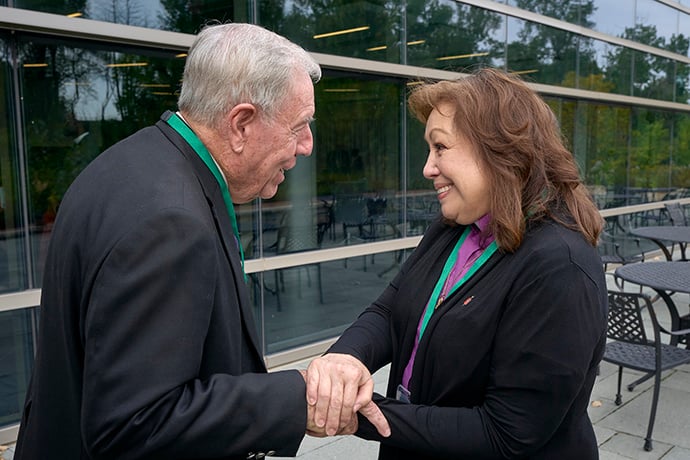
Carcaño now returns to the California-Nevada Conference and the Western Jurisdiction, which has experienced division over the whole suspension and subsequent trial. Because of age limits for bishops, Carcaño is scheduled to retire next September when she will be 70.
“The focus of God’s work is creation, healing and restoration,” California-Pacific Conference Bishop Dottie Escobedo-Frank said in a statement. She serves as a president of the Western Jurisdiction bishops and attended the trial as an observer alongside Desert-Southwest Conference Bishop Carlo A. Rapanut, who is the secretary of the Western Jurisdiction bishops. Both were elected late last year after Carcaño’s suspension.
“My heart and prayers are with everyone who has been involved in this process,” Escobedo-Frank added.
Rapanut also committed to work toward restoration.
“May this serve as an opportunity to provide a witness to the world as we live out our Christian values of grace, forgiveness, justice and love,” he said.
Retired Bishop Sally Dyck, who served her episcopacy in the North Central Jurisdiction, has been serving as interim bishop of the California-Nevada Conference while Carcaño was under suspension.
“While this has been a very unusual, even unique, interim episcopal assignment, I have found it to be a true blessing,” she said. “The clergy and laity — no matter their opinion and feelings about Bishop Carcaño’s suspension — have been open to my leadership.”
She said that when she began her interim role, she asked all conference leadership to “do their job.”
“I commend them for doing just that, moving forward in mission and ministry, including approving a new conference vision. Many thanks to all in the California-Nevada Annual Conference!”
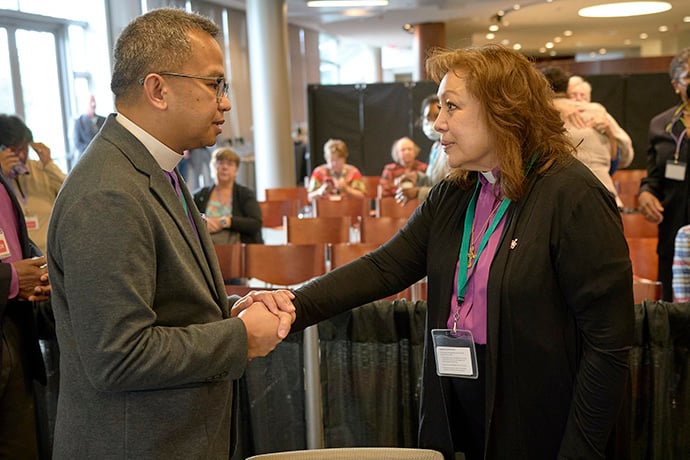
Carcaño has gained renown as a pioneering church leader and champion of the human rights of immigrants — both within the denomination and on the national stage, including testifying before the U.S. Congress.
She has served on the boards of various United Methodist agencies and ministries, including Africa University, the pan-African United Methodist institution in Zimbabwe. She also has called for the full inclusion of LGBTQ people in the life of the church — a controversial stand in much of the denomination but one largely shared in the Western Jurisdiction.
News of her suspension stunned many across the denomination, and various groups called for immediate reinstatement. Among those groups was MARCHA (Methodists Associated Representing the Cause of Hispanic/Latino Americans), the denomination’s Hispanic and Latino caucus.
The Rev. Lyssette N. Perez, a United Methodist pastor in New Jersey and president of MARCHA, was among those who attended the trial at the invitation of Gwinn to ensure fairness. In addition to representatives from MARCHA, official observers included representatives from the United Methodist Commission on Religion and Race and the United Methodist Commission on the Status and Role of Women.
More photos and related coverage
See more UM News photos from the trial on Flickr.
Read previous UM News trial coverage:
Perez said that she felt the trial was fair.
“Of course, I celebrate that Bishop Carcaño is not guilty,” Perez said. But when she looks back, Perez said she is still troubled by the suspension.
“She said that she was banished, but more than that, she was crucified for 18 months. And we crucified a voice that was extremely important for the denomination. In the end, this was something that could have been resolved at the conference level.”
Retired Bishop Marcus Matthews attended the trial in support of Carcaño. “It’s because I have known her since the ’70s and ’80s, and I’ve always seen her as a person of faith, a person who loves the church,” he said. “And I just knew that what was being alleged just didn’t fit.”
Subscribe to our
e-newsletter
Judge Jon R. Gray, a retired judge in the Sixteenth Judicial Circuit of Missouri, served as assistant counsel to lead counsel, the Rev. Scott Campbell, in representing Carcaño in the case. Gray noted that both he and Carcaño received scholarships at the same time from what is now the United Methodist Board of Global Ministries. He used his scholarship for law school and she for seminary.
In 2012, Gray represented Bishop W. Earl Bledsoe, a Black bishop who never underwent a church trial but was facing involuntary early retirement in the South Central Jurisdiction. The Judicial Council, the denomination’s top court, eventually reinstated Bledsoe to active service.
“The church still has a racial dilemma,” he said. “My experience with Bishop Bledsoe and again with Bishop Carcaño is that there were differing standards and differing systems applied, different treatment afforded, and we still have much work to do.”
Gwinn, the presiding officer, had reminded those attending the trial and watching the livestream online each day that they were all part of the body of Christ. He also opened and closed each session with prayer.
After announcing the verdict, he urged those watching to consider a better way for handling disputes in The United Methodist Church than the church trial process. He has presided at such trials for more than a decade.
“I hope, brothers and sisters — particularly those of you who are younger— will come to understand that we must repair the harm we're doing with the process we use in dealing with this. We are not witnessing at all to a secular world in this process.”
Carcaño, as one of only two bishops to face a church trial since 1928, also said she hopes her trial might serve as “a breaking point” for the church.
She said her hope is that the church might move away “from being a litigious people to a people of love and compassion for one another, and in that manner extend ourselves to a broken world.”
Hahn is assistant news editor for UM News. Contact her at (615) 742-5470 or [email protected]. To read more United Methodist news, subscribe to the free Daily or Friday Digests.

